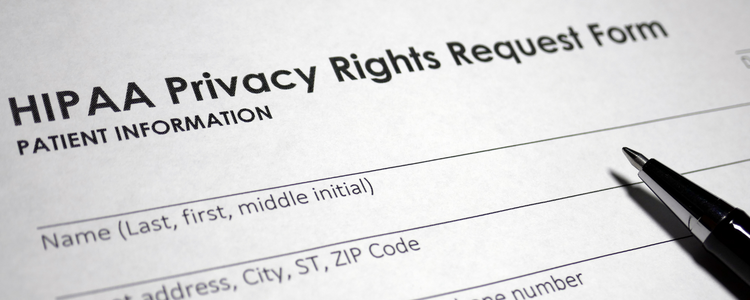When it comes to providing mental health services online, what safeguards do therapists and counselors need to implement when offering HIPAA compliant telehealth? This post will outline some crucial things you need to know to grow your practice and maintain a healthy client base with safety and integrity for everyone involved.
What is HIPAA?
As a mental health professional, you likely get continuing education credits on ethics every year. Many of these courses emphasize the importance of confidentiality and privacy. These concepts are the main purposes behind the Health Insurance Portability and Accountability Act of 1996 (HIPAA). The legislation affords certain rights to patients, or clients, to keep their information safe.
HIPAA provides safeguards for Protected Health Information (PHI), which includes personal demographic and medical information about clients. The following is Protected Health Information (PHI):
- Name
- Date of birth
- Address
- Phone number
- Gender
- Age
- Other demographic information
- Insurance information
- Diagnoses
- Test and lab results
- Medications
- Other health records
This list isn’t comprehensive, but it covers some crucial components. With HIPAA in place, medical and health professionals can’t give anyone information about their patients.
HIPAA and Online Mental Health Services
HIPAA is crucial for maintaining a confidential relationship with your clients in private practice. Advances in technology make telehealth more accessible, but with this accessibility comes the need for diligence in providing confidential care.
Much like in a face-to-face counseling setting, there is potential for breaches of confidentiality online. As a mental health professional, it’s your job to put safeguards in place to try and prevent any of your clients’ information from getting into the wrong hands.
It’s essential to take all the steps you can to ensure your online dealings with clients are as secure and confidential as possible. Doing so keeps your clients and your practice safe.
Guidelines for HIPAA Compliance Telehealth
You know that HIPAA compliance in telehealth is necessary, but what guidelines should you ensure are in place to practice ethically online?
- Pick a Secure Platform – Do your research to find a HIPAA compliant telehealth platform. Consult with other professionals in the field. Don’t assume that something is a secure platform just because it’s advertised as one — read reviews and request demos before you commit to anything.
- Allow Authorized Users Only – Once you decide on a platform that works for your practice, don’t give every person in your office access. If you’re working with other professionals in your private practice, ensure each person has their own account with secure passwords. Ensuring that only authorized users have access goes a long way toward protecting your clients and your practice.
- Establish Secure Communications – Implement a secure communication system to protect the integrity of ePHI. This security means not texting or emailing information about clients, even to colleagues, without ensuring that text or email is encrypted. Encryption makes information unreadable or undecipherable to anyone who isn’t the intended receiver of the email or text message.
- Monitor Communications – Once you’ve found adequate software for your practice, check it regularly to confirm it’s working correctly. You should have a system of monitoring communications containing ePHI to prevent accidental or malicious breaches.
Additionally, don’t use SMS or Skype for online mental health services. These platforms aren’t secure and are not HIPAA compliant.
Why is Telehealth So Crucial for Private Practice?
Adding a HIPAA compliant telehealth option to your practice provides advantages that can bolster your face-to-face practice with clients. For example, adding an option for clients to choose telehealth when they run into last-minute scheduling issues that normally prevent them from attending a session increases your practice’s contact with clients. Decreasing cancellations is great for your business and your clients.
Incorporating telehealth options into your practice can also expand your client base. By reaching clients that are farther away, you have the potential to add to your client roster.
You can also gain clients by more widely advertising your telehealth practice, allowing you to dive deeper into your specialization and reach your target audience easier.
How Can All Counseling Help?
All Counseling is a comprehensive online support service that provides everything you need to grow your therapy practice. Not super tech-savvy? No worries! All Counseling provides all of the HIPAA compliant technology you need. Add your therapist profile to help telehealth clients find you.

